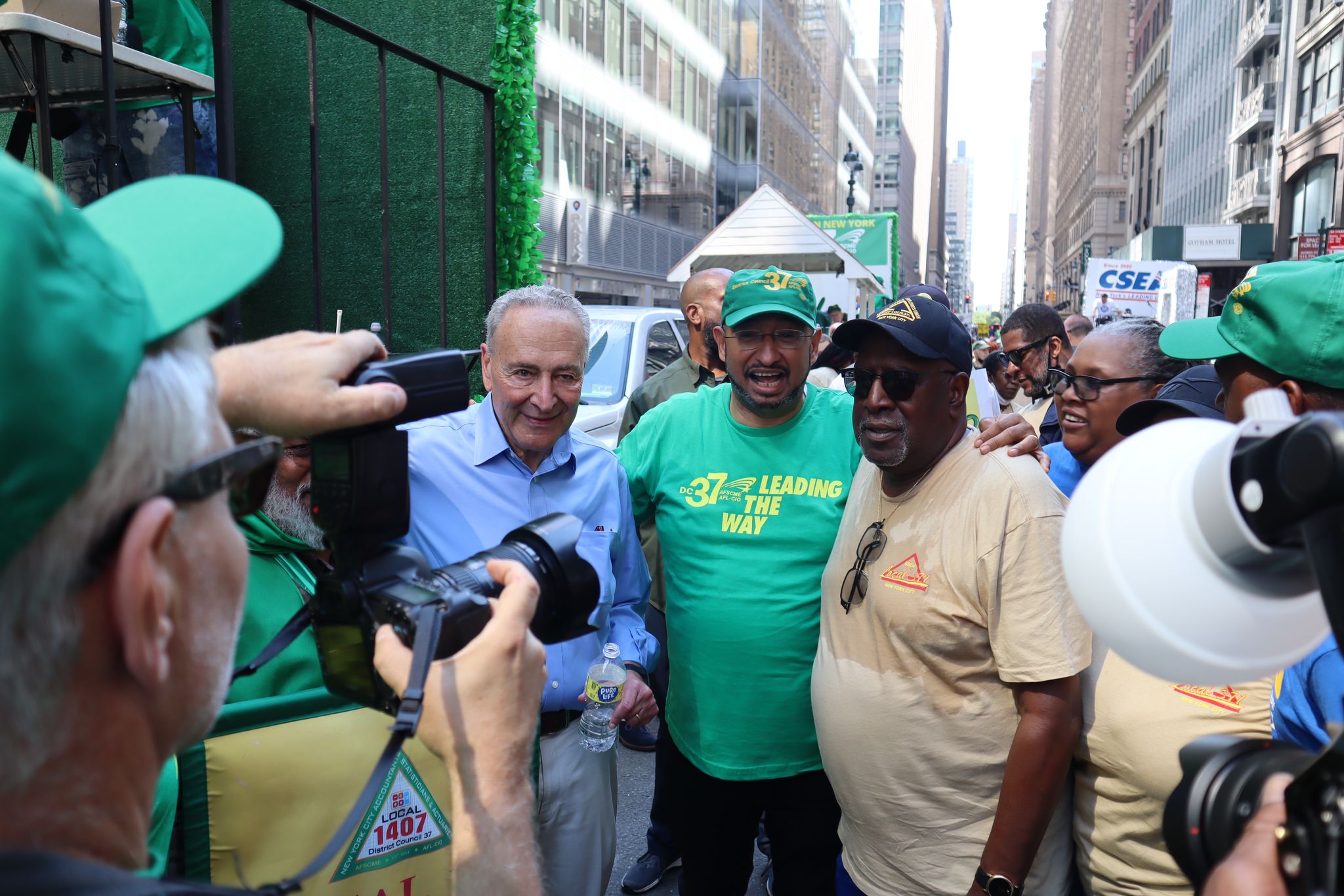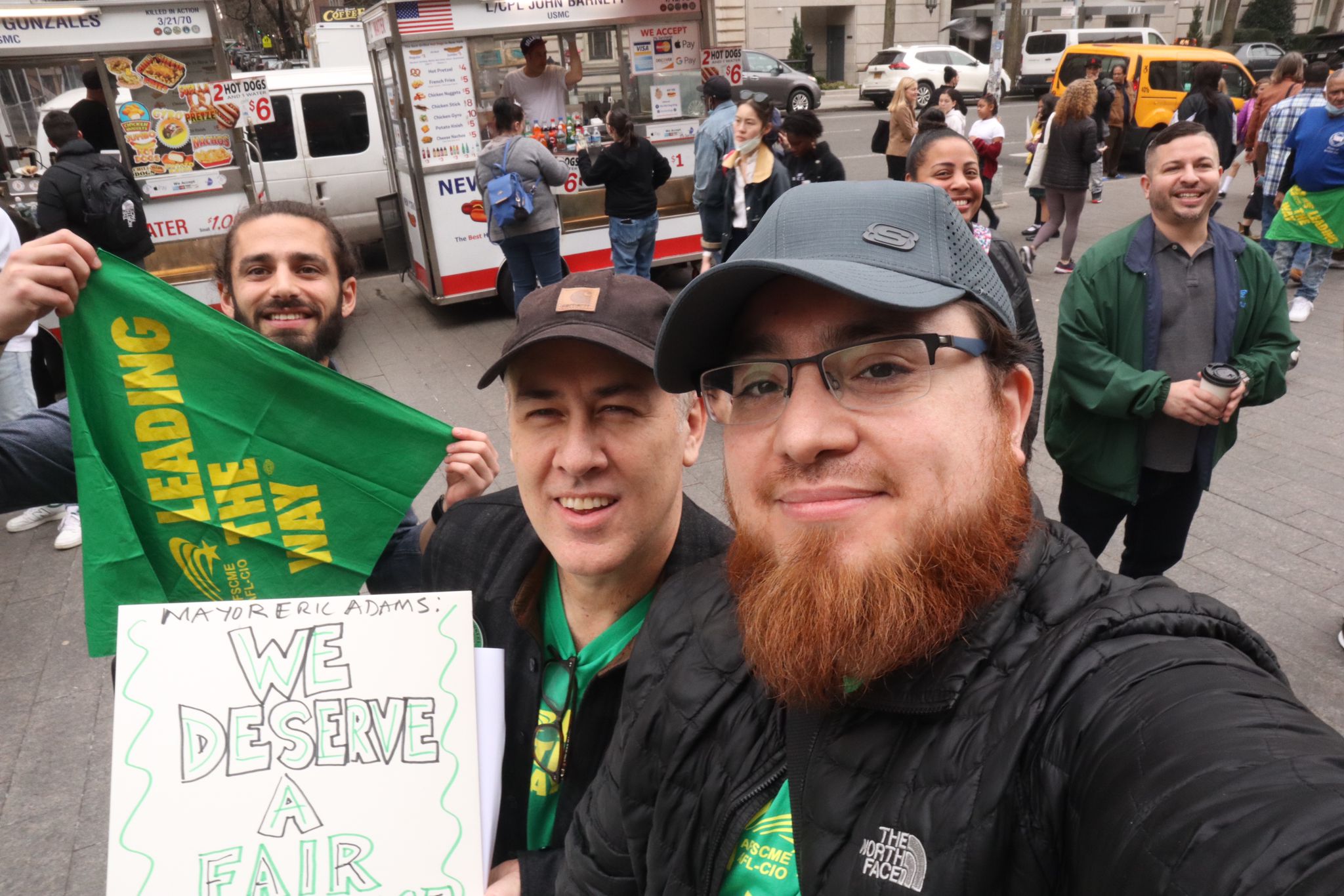Why unionize?

We, the workers of the Metropolitan Museum of Art (MMA), are steadfast in the mission of bringing art and art education to the public. We are stakeholders in this institution's success as well. We also affirm that we are part of something bigger than ourselves. We value community, solidarity, and true democracy at our museum.
However, we feel a divide between the union and non-union employees. We often feel overworked with unclear job boundaries. Many of us are in precarious positions where management holds the keys to our future by using “contracted and at-will employment.” We struggle with the uncertainty of job security from year to year. We are frustrated with the lack of a legitimate voice on the job to gain better wages, benefits, and work policies. Management has created a hierarchical structure to keep our co-workers divided. How can we fulfill our joint mission if we feel overworked, underappreciated, and undervalued?
Our only recourse is to join our District Council 37 siblings in a wall-to-wall union to collectively bargain a strong union contract. We are unionizing to have a voice on the job, transparency, create equality, and pay equity for all MMA employees.

How will a union help me?
Forming a union will allow us to negotiate policies that create a more sustainable work life. Policies about educational credits, retail bonuses, work schedules, and health benefits could be changed, enforced, or enhanced by negotiating them into a union contract. For example, in the past DC 37 has negotiated overtime provisions, job descriptions, duty-free breaks, and scheduling to deter management from overworking employees.
Non-Union workers are considered “At-Will” employees. At-Will means our employer has the right to arbitrarily change, terminate, or amend any policy, benefit, or employment. Union members are not At-Will employees due to their right to collectively bargain a legally binding contract. DC37 has negotiated collective bargaining agreements containing language defining due process rights and progressive discipline, i.e., cannot be terminated without just cause.
Some of us might be contractors — exploiting workers using contracted employment is a common anti-union strategy to discourage people from believing they can not join a union when there is eligibility. Without a union, the museum can make unilateral and egregious decisions that can result in losing current benefits.
Who’s negotiating my labor contract?
We, the workers, will negotiate our contract! Workers volunteer to represent their coworkers and run for election to join the Bargaining Committee. The Bargaining Committee will poll our co-workers about the changes we want to see at The Met. The Bargaining Committee will then negotiate the best agreement using the demands created by the workers at the museum. DC37 provides a professional negotiator to help assist the Bargaining Committee with our contract.
And what about my current benefits?
Without a union, management has full autonomy to change our benefits at any time. Unionizing gives us a voice and the right to bargain for all benefits that affect our livelihood and wellbeing. When we negotiate our contract, the bar begins where we already are. We the workers will determine which benefits should be improved, and how.
Aren’t there already employee groups?
All organizations created by The Met are controlled by management, not us. Organizations like The Forum, Assembly, or Collections Care Group can “suggest” changes, but management has the final decision on topics we bring to them. These groups, or “Staff Associations,” were created by management in the 70s to discourage unionization. These “Staff Associations” are not unions.
A former Met employee quoted in a 1972 New York Times article stated that these groups are “dominated by management.” They are used to divide the workforce from unionizing as one powerful group. Workers can only bring equality, transparency, and a voice on the job by unionizing wall-to-wall to secure a strong bargaining agreement.